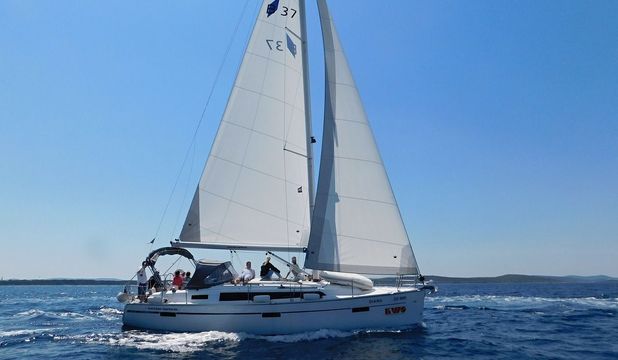Russian sailing week Volvo 2020
Duration
Team level
Activity level
Event Language

About event
Start:Fethiye, Muğla, Turkey
Finish:Fethiye, Muğla, Turkey
Russian sailing week Volvo 2020
Twice a year, in May and October, Russian sailing week Volvo takes place near the shores of the Mediterranean Sea. Twice a year, teams challenge stereotypes about yachting as an inaccessible and expensive activity only for the elite. We inspire newcomers to sail and discover the world of vivid impressions, genuine emotions and lively communication.
Thanks to the mild climate of the Mediterranean, excellent yachting infrastructure and a modern fleet, Russian sailing week Volvo is held from year to year at the high level of comfort and safety. The regatta route and the competition schedule are created in such as way so that the boats moor daily in a new picturesque bay, where there are interesting sights, and a good restaurant.
At the same time, Russian sailing week Volvo is a real sailing race with excitement, tears, and victories. Every evening we celebrate the winners of that day stage, and according to the results of the regatta the best team becomes the owner of a crystal cup.
For over ten years, Volvo Car Russia has been the general partner of the regatta. The ideals of the Volvo brand, such as the opportunity to safely and comfortably spend time with family and friends, learn something new, and get inspiration for future achievements in life, are in perfect harmony with the spirit of a sailing regatta, which you should certainly feel yourself.




Russian sailing week Volvo 2020
October 17, 2020 — October 24, 2020from €800 / 8 days / 1pers.
Events schedule
- Oct 17, 2020
9:00 - 18:00 Registration in the Fethiye ECE Marina. Crew registration.

- Oct 18, 2020
Offshore races.

- Oct 19, 2020
Offshore races.

- Oct 20, 2020
Route races around the islands.

- Oct 21, 2020
Offshore races

- Oct 22, 2020
OFFSHORE RACE

- Oct 23, 2020
CULT TRIANGLE RACES IN MARMARIS GULF.
YACHTS MOORING AND RELAXING.
REWARD CEREMONY.

- Oct 24, 2020
Closing ceremony. ECE Saray marina.

Location
Russian sailing week Volvo will take place along the route Fethiye - Fethiye. Offshore and triangle races will be held here. A detailed regatta schedule will be added later.
Discussion
FAQ
Can I participate in a regatta if I don’t have yachting experience?
Yes, of course. There will be an experienced skipper and team members on the yacht. They will give you a role and teach you everything you need to know to be a useful team member and feel comfortable.
Will I be able to steer a yacht?
Yes, all team members will definitely try themselves in different roles to better understand each other. Standing at the helm is an integral part of training for beginners as well as setting sails, and helping the team during moorings.
Where will I live during the regatta?
As a rule, participants in the regatta live on the yacht. The boat has everything you need for a comfortable stay: nice beds, a kitchen, a shower with toilet. If you do not want to live on a yacht, then you can arrange to stay at the hotel onshore.
What will we eat?
The crew decides altogether what kind of food they prefer to eat and makes necessary purchases. Simple dishes can be cooked, usually taking turns. Some regattas offer daily meals and intensive evening program for all crews.
Do you help with a visa?
We can make an invitation for a visa, but you need to apply for a visa by yourself.
Will I have seasick? What should I do if I have sickness?
Most people tolerate some seasickness easily. If you feel that you are starting to feel sick, it is best to get at the steering wheel or tune the sails. Get yourself busy, show your body that you don’t have time to get sick, you have to fight for victory in the race. There are also many quite effective medicines from sickness. If you start taking them in advance, then the probability of seasickness is almost zero.
How and where will I meet the crew and the captain?
Before each trip, we organize an online meeting where participants get to know each other and the captain. The captain will answer all your questions. The crew will have a group chat so you can get to know each other before the start of the regatta. Then you will meet in the marina.
What clothes do I need?
The main rule is to dress comfortably and according to the weather. Clothing: • windbreaker and pants or shorts; • shirt/jacket with UV protection (thermal underwear and fleece); • adjustable hat/cap; • gloves. We recommend to purchase a long-sleeved jacket with UV protection in order to protect yourself from the sun and strong wind. Yachting shoes should be: • light, with non-slip white outsole; • with the fixed heel; • with a tightly closed nose. During the sailing without shoes, you can fall or injure your fingers and feet on the deck. There are many protruding parts on the boat that are easy to catch. Unfortunately, even experienced sailors are not protected from unpleasant injuries when they ignore this simple rule.




No comments, be the first one!